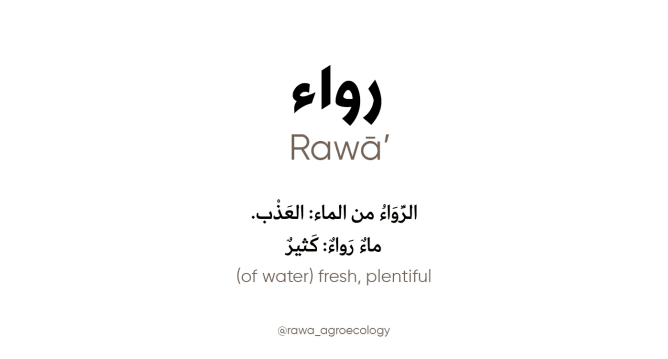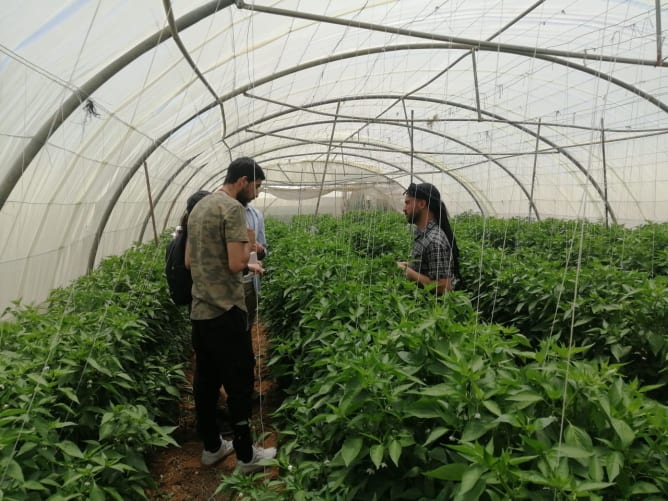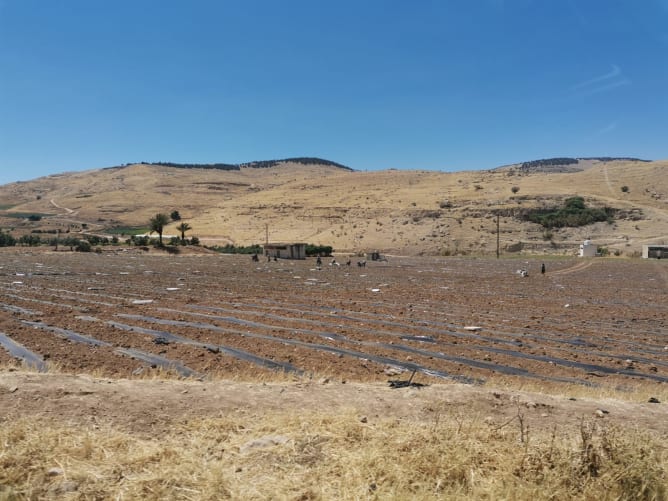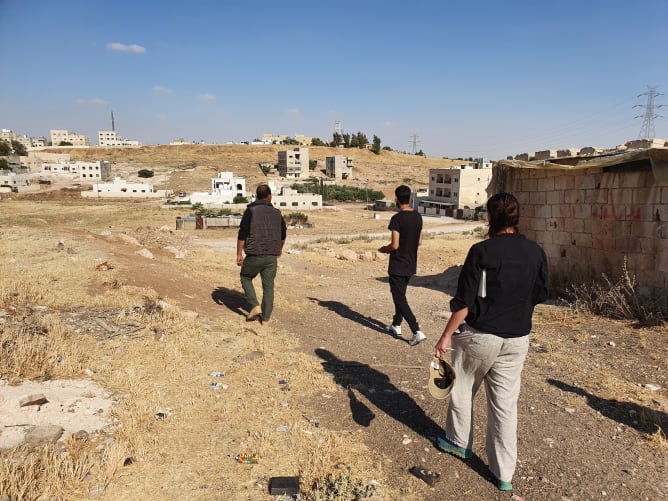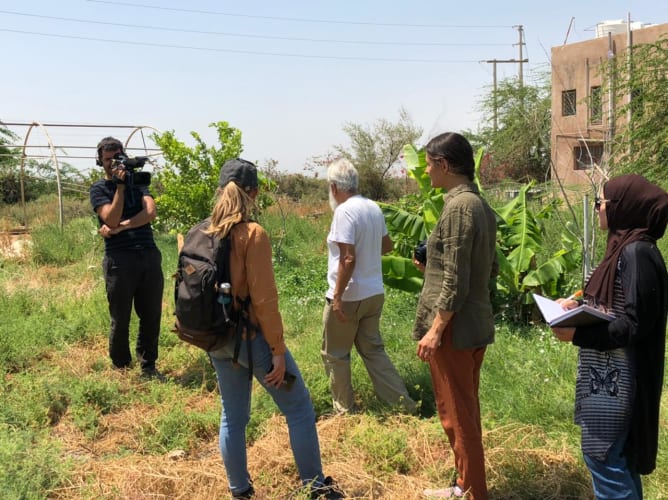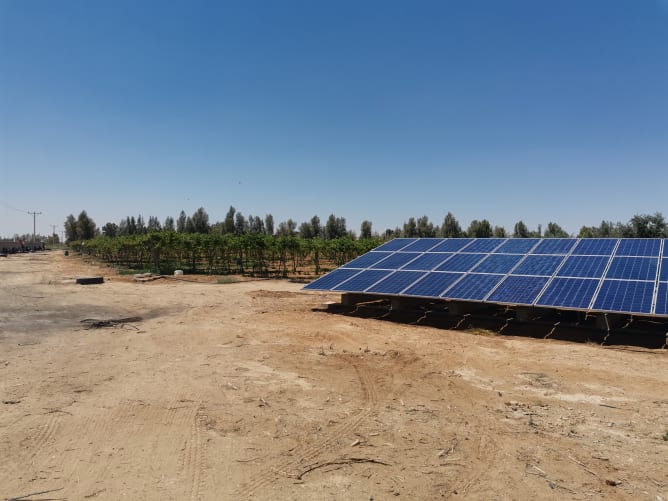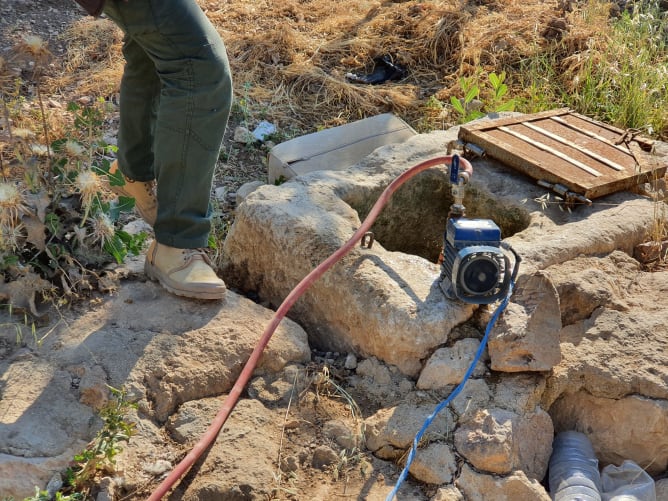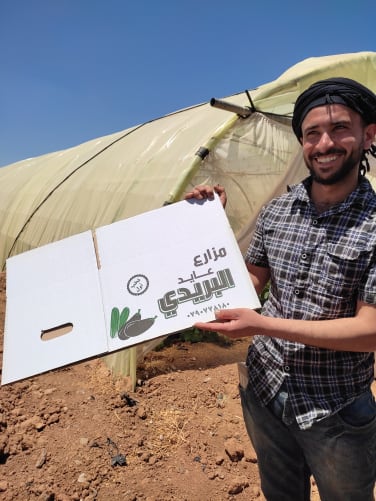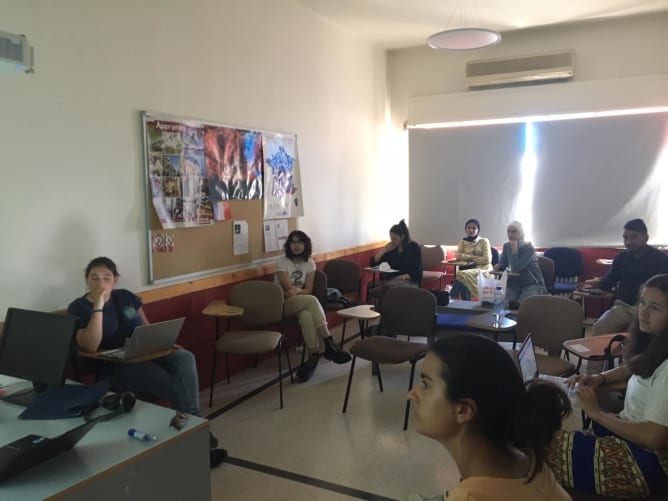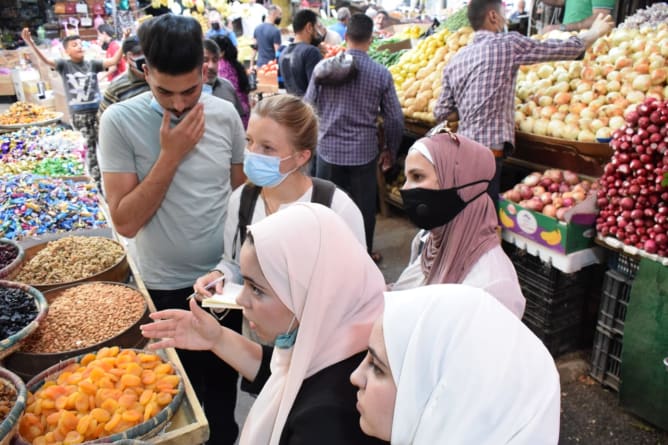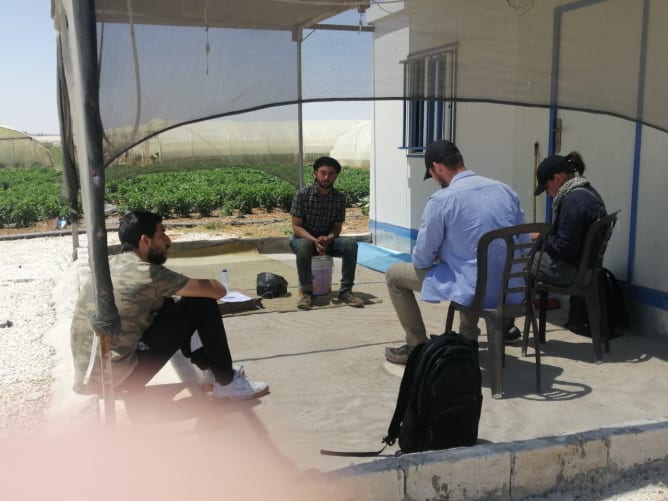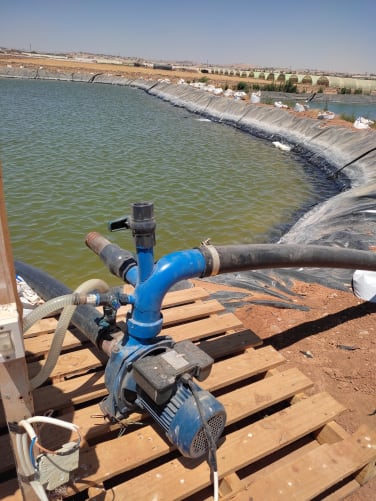RAWA': Dryland Agroecology
Arabic-speaking farmers want access to quality agroecology content
Modern, conventional agriculture favors practices that leave the soil barren. Reliance on chemical inputs results in more erosion, economical dependence on fertilizers, dwindling farmer livelihood and, ultimately, desertification.
Particularly affected are the 2 billion people living in the drylands, where precipitation is increasingly rare and unpredictable, due to climate change.
But there are existing solutions and incredible potential for innovation: farmers and entrepreneurs throughout the world are experimenting with new, low-capital agricultural techniques, such as agroforestry and no-till gardening, and are usually rewarded by their customers who are willing to pay for the difference - most to enjoy a healthier product, and some to lessen their ecological footprint.
What is missing, though, is a mechanism to pass this evolving know-how between the different stakeholders. Farmers from, say, Jordan and Southern Spain cannot share their findings and draw inspiration from each other; they struggle to find applicable knowledge in abstract scientific articles ; on top of that, Arabic speaking farmers cannot tap into the thousands of existing YouTube videos with excellent agroecological content because they are usually in English.
🎞️ 🧑🌾 About RAWA’
RAWA’ fills this gap by creating tailored, practical, contextualized videos. «Tailored» means that the program is determined by interviewing farmers in drylands, understanding their pains, constraints, and wishes; «practical» means research will investigate not just the academic literature but also existing proof-of-concepts so as to produce actionable, replicable content; and «contextualized» implies that though the science might be the same universally, factors such as economical and cultural constraints must be considered to ensure practicality and, as a result, adoption by the farmers.
RAWA’s first playlist provides 10-12min episodes on agroecology to Arabic speaking individuals in the agricultural sector that lack adequate access to resources, for financial, linguistic or educational reasons. The second playlist contains «vlog» entries with a mix of science, adventure and entrepreneurship, destined to a larger audience of individuals interested in climate change, ecology, agriculture.
RAWA’, the team, what makes us special
RAWA’ is an initiative of RegeMena, a Swiss cooperative founded in 2020 by Jerome Castan and his friends with the mission to «promote, develop and research regenerative agriculture in mutual self-help, especially in the MENA region» (Middle East and North Africa). The idea of RAWA’ is based on results from RegeMena’s field research in Jordan, Spain and Portugal - see the YouTube video at the end of this page.
🎞️ 🧑🌾 The team
By lending us your support, you are backing a diverse team of serious and passionate professionals who work extra hours to set their skills to good use.
- Jeremy Rieder 🇨🇭, works in the UK’s TV industry and has a passion for filmmaking . He looks forward to using his skillset to attract attention on special social and environmental issues. He is in charge of RAWA’s production.
- Aya Saleh 🇱🇧 is a meticulous graphic designer based in Lebanon with extensive experience for international clients. She will make sure RAWA’ has impeccable branding and illustrations.
- Matthieu Cretté 🇫🇷 is a video producer based in Amman and our - Jack-of-all trades, since he’s currently studying agriculture and market gardening but also boasts unique experience in audiovisual activities.
- Jerome Castan 🇨🇭 is a physicist, based in Switzerland, and has spent the last 2 years in Jordan, spending time studying agroforestry and developing a network of students, farmers, and business people. He leads the project and is responsible for scientific content.
- In addition, Dr. Jwan Ibbini 🇯🇴, holder of a PhD in soil microbiology, is our first scientific editor and Israa Mansour 🇯🇴, a geology graduate, is our first researcher.
🎞️ 🧑🌾 Why is this project special?
In short, because RAWA’ fills a niche need of farmers that, first, consider themselves underserved in information and, second, live in a region particularly and increasingly affected by climate change. Our team brings citizens from all across the world, all interested in putting their skills to good use. In terms of impact, we hope to reach a substantial number of small- to middle-scale farmers, some of which rely solely on rain for irrigation (49% of farmers in Jordan!) By offering practical information in Arabic, we expect farmers to notice improvements in water utilisation, biodiversity preservation, and product quality, resulting in better resilience, income, and health.
... and this is where you come in.
Unsustainable agricultural practices coupled with climate change’s effect in the drylands leads to accelerated desertification, a vicious cycle for farmers. There are new tools and methods to face these issues, and RAWA’s job is to identify them and check their applicability, before relaying the information to the people who need them most in a language they understand.
🧑🌾 We have the people, we have the network, we have the passion, and with your help, we can leave the starting blocks and kickstart this project – a full, first season as a «proof of concept»! 🎞️
The team computed that each episode of about 10 min would cost about 5’000CHF. This covers research, filming material, trip logistics, animations/illustrations, editing, mostly. To run a first full season, we would need at least 10 episodes to publish weekly over 2.5 months, which amounts to 50’000CHF. The good news is: we’ve won the ImpactFund competition and if we reach any amount above 25’000CHF from 200 different donors, we get an extra 25’000 CHF so in essence, your contributions count double!
Here are the targets we set ourselves:
- 25’000 is our minimum, to get the ImpactFund price and guarantee a short first season (6-8).
- 35’000 allows us to subtitles in English / French and an extra 1 episode.
- 50’000 add episodes, get own filming gear (save time, money), hire a coordinator.
- 75’000 first season of 3 months, weekly episodes, improved illustrations and research quality.
- 100’000 first season of 6 months, budget to increase reach among farmers, Afghanistan special.
